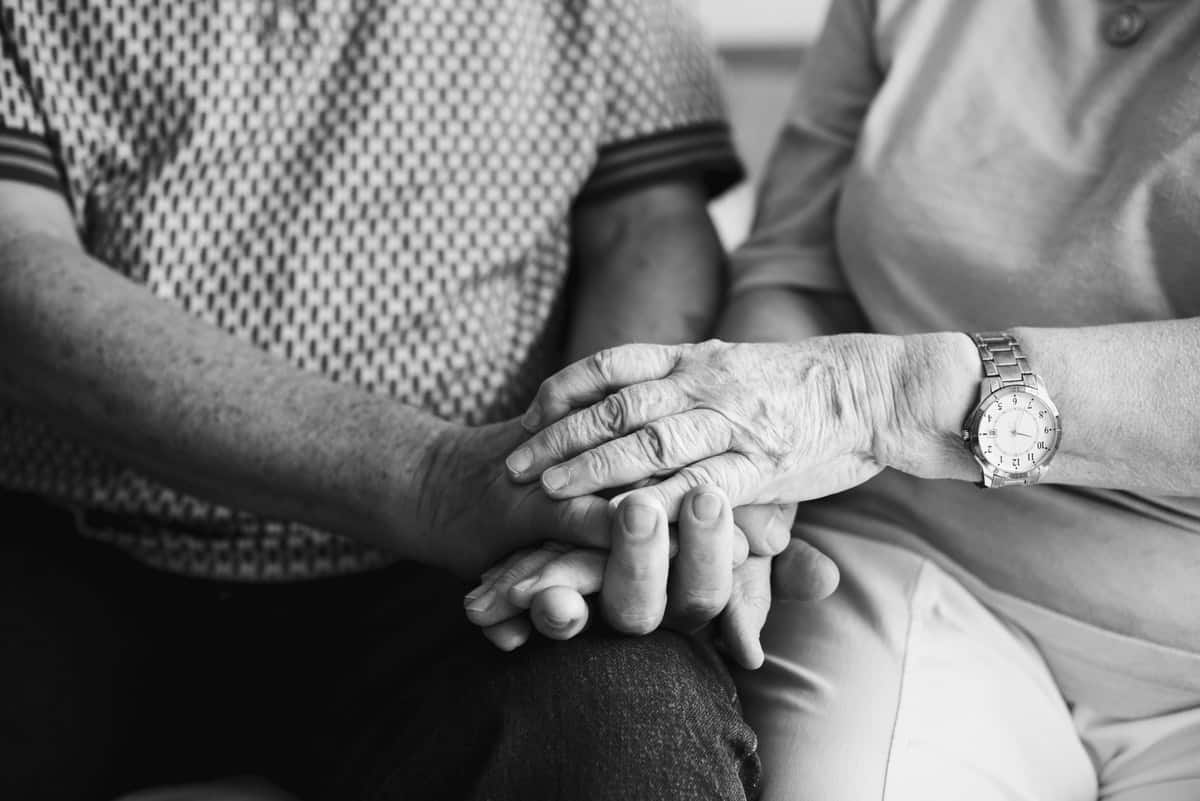What follows is a guest post by Allison Schroeder, a 30-something mother of three who finds herself also caring for her parents. Below she opens up about the challenges that being in the Sandwich Generation brings.
When young couples dream of their future selves, the image of “growing old together” feels like a magazine portrait of senior youthfulness and vitality.
Slow handheld walks.
Retirement vacation bliss.
Making dinner together.
Game nights with the grandchildren.
While many couples are blessed with many years of this lifestyle, inevitably one person begins to decline in health, mobility, mental clarity or all three.
The years of growing old “together” will teeter totter to one side and through the balancing act, a caretaker will emerge.
As the adult daughter of 70-ish year old parents, I’ve watched my own mom and dad trek through this journey.
It’s beautiful really.
The commitment.
The bond.
The unwavering loyalty.
My dad is the first line of care for my mom and I’m often called in for backup when things get rough. Her health has wavered over the past 8-10 years between stable and critical and everything in between but even on her best days my dad is in some way the caregiver not just the handsome groom of days past.
My dad is a rather healthy and active man but being a caregiver of a spouse is stressful on even the most youthful of people.
At 72, I worry about his stress level, his physical abilities to help her with her limited mobility, and his own overall well-being. I wonder what their dream of growing old together looked like and if respite care would allow my dad more freedoms and my mom more dignity.
As my dad is helping my mom into the car and without a complaint, folding up her walker to place it into the trunk, I see them 40 years old and dancing together randomly in the kitchen.
I see them at 55 empty nesters and filling their silence with talk about the vacations we took as a family and their bucket list of places they still want to go.
And here at 70, I’m sad for her limitations and I’m worried for the responsibility he has as her caregiver.
When we think about marriage vows, we pray that the “in health” always outweighs the “in sickness”.
That the richer for poorer and all of the other variables that are promised take the road of positivity.
But the truth is, after 50 years of marriage and spousal synergy, parenting two kids into adulthood, career ups and downs, and every other life curveball they have handled together, their “happily ever after” isn’t mine to define.
They are together in their own home and just maybe the limitations that I see are really freedoms in their eyes.
Arista Home Care Solutions makes it easier for a spouse to remain the primary caregiver in the home. We can evaluate the home for safety concerns and offer suggestions on ways to make the home more accommodating for years of living together independently.

 Arista Wins Top Workplaces Award
Arista Wins Top Workplaces Award


